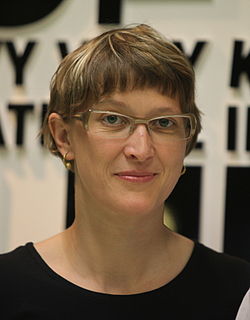Top 27 Quotes & Sayings by Jasmila Zbanic
Explore popular quotes and sayings by a Bosniak director Jasmila Zbanic.
Last updated on April 21, 2025.
Cinema connects people: they respond as a group, you feel you are not alone, and you see you are not alone. Capitalism is destroying this social aspect of films, and even empathy, by creating the illusion that you are more important than the next person: 'You will buy this because you are special.' That is horrible.
Always, for me, when I am dealing with subjects related to my country that are very emotional, I have to find the right tone and distance because, obviously, I start with anger, asking 'why that happened' and 'why it is still happening.' I work to rise above my personal anger but still stay connected to my emotions. That's a big challenge.






















